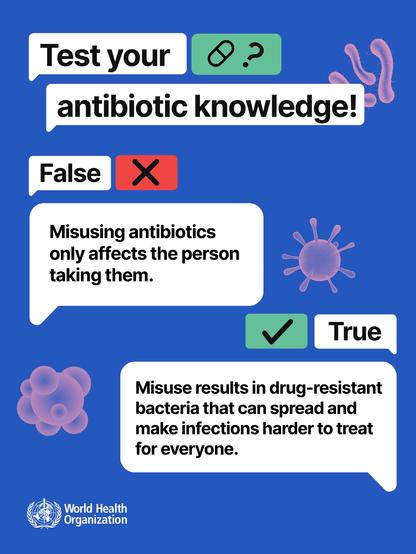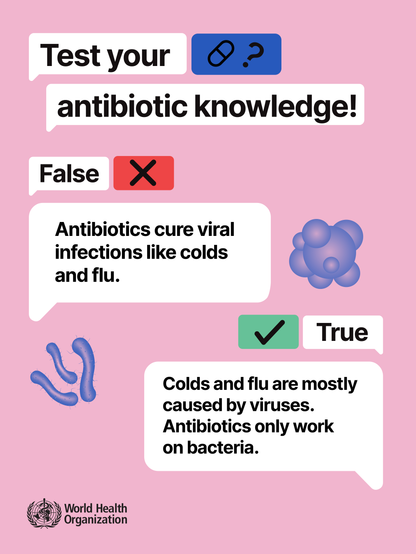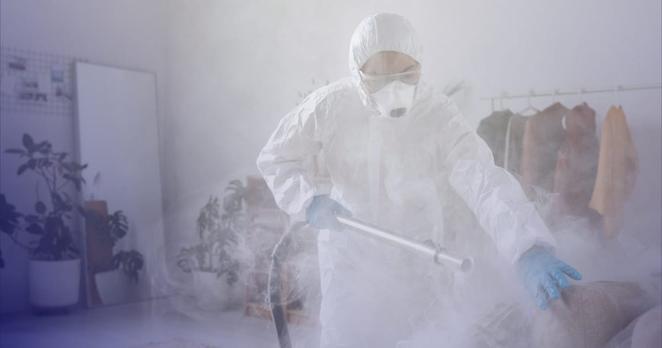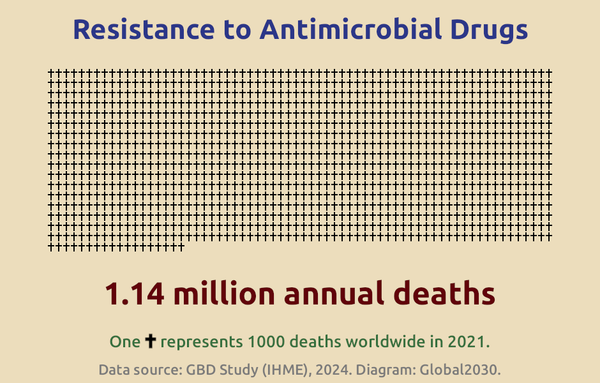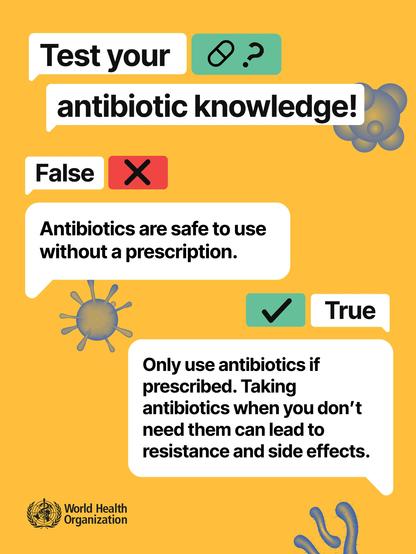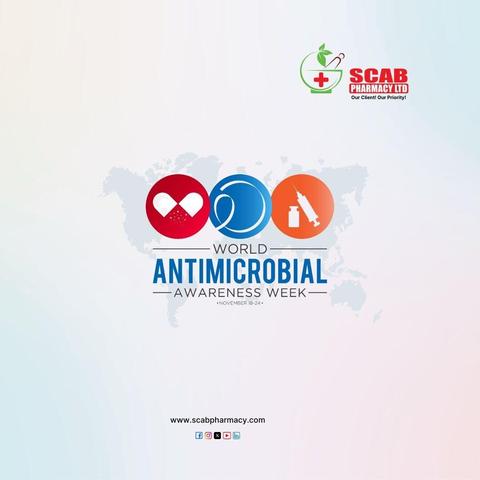#AntimicrobialResistance #AMR #AntibioticResistance #WAAW #OneHealth #CurbingAMRTogether
World #AntimicrobialResistance Awareness Week starts today!
#Resistance to #antimicrobial drugs was responsible for around 1.14 million attributable deaths in 2021. The #death toll is projected to increase to 1.91 million in 2050.
#GlobalHealth #GlobalGoals #SDGs #2030Agenda @UN @WHO @IHME_UW #GBDstudy #AMR #AMR2025 #WAAW #WAAW2025
https://www.healthdata.org/research-analysis/library/global-burden-bacterial-antimicrobial-resistance-1990-2021-systematic
The following hashtags are trending across South African Mastodon instances:
#Wordle
#wordle1613
#goodmorrows
#scabpharmacy
#waaw2025
#actnowprotectourfuture
#stopamr
#antimicrobialresistance
#antibioticresistance
#infectionprevention
Based on recent posts made by non-automated accounts. Posts with more boosts, favourites, and replies are weighted higher.
𝗪𝗼𝗿𝗹𝗱 𝗔𝗻𝘁𝗶𝗺𝗶𝗰𝗿𝗼𝗯𝗶𝗮𝗹 𝗔𝘄𝗮𝗿𝗲𝗻𝗲𝘀𝘀 𝗪𝗲𝗲𝗸 (𝗪𝗔𝗔𝗪) 𝟮𝟬𝟮𝟱
𝗡𝗼𝘃𝗲𝗺𝗯𝗲𝗿 𝟭𝟴 - 𝟮𝟰, 𝟮𝟬𝟮𝟱
𝗧𝗵𝗲𝗺𝗲: 𝗔𝗰𝘁 𝗡𝗼𝘄: 𝗣𝗿𝗼𝘁𝗲𝗰𝘁 𝗢𝘂𝗿 𝗣𝗿𝗲𝘀𝗲𝗻𝘁, 𝗦𝗲𝗰𝘂𝗿𝗲 𝗢𝘂𝗿 𝗙𝘂𝘁𝘂𝗿𝗲
Antimicrobial resistance (AMR) threatens global health by making infections harder to treat. Misuse of antibiotics speeds up resistance, risking modern medicine’s effectiveness. This week calls for everyone—public, healthcare workers, and policymakers—to act responsibly.
𝗛𝗼𝘄 𝘆𝗼𝘂 𝗰𝗮𝗻 𝗵𝗲𝗹𝗽:
- Use antimicrobials only when prescribed.
- Complete the full treatment course.
- Don’t share or use leftover medicines.
- Practice good hygiene and get vaccinated.
- Support efforts to prevent AMR.
#SCABPharmacy #WAAW2025 #ActNowProtectOurFuture #StopAMR #AntimicrobialResistance #AntibioticResistance #InfectionPrevention #ResponsibleUse #HealthForAll #FightDrugResistance
How #NatureBased Solutions Can Help Tackle #AntimicrobialResistance
by Paula Pérez González-Anguiano Europe Mar 17th 20254 mins
"In many European countries, antimicrobial resistance genes are present in #wastewater treatment plants, particularly in water coming from hospitals. In most cases, these plants are not designed to eliminate these genes, allowing them to pollute rivers and eventually reach homes. Antibiotics and resistance genes used to fertilize fields also make their way into aquatic ecosystems via livestock manure.
"A global survey published in Nature in 2024 revealed that drug-resistant infections killed more individuals than Human Immunodeficiency Virus (HIV) or malaria. It is estimated that by 2050, antimicrobial resistance (#AMR) – which occurs when bacteria and fungi evolve to withstand the drugs meant to eliminate them, allowing infections to persist and become difficult or even impossible to treat – could cause up to 10 million deaths. This is comparable to the number of deaths caused by cancer in 2020.
"Nature-based solutions are strategies that involve working with nature to address societal challenges, providing benefits for both human well-being and biodiversity. Examples include reforestation to absorb carbon and prevent erosion, wetland restoration for water filtration and flood control, green roofs to cool cities and reduce pollution, mangrove protection to protect coasts, and agroforestry to enhance soil health and crop yields. These solutions improve biodiversity, water quality, and disaster risk while also boosting human well-being through cleaner air and greener spaces.
"Wastewater from urban treatment plants contains #biofilm – mainly bacteria and microalgae – as well as planktonic communities that absorb antibiotic-resistance genes and mobile genetic elements. Biofilm naturally forms on stones in the water and helps purify it by breaking down these contaminants.
"Inspired by this natural process, researchers from BETA Technological Centre in Catalonia, Spain, have developed a lab-based pilot-scale system as a nature-based solution. In the plant, wastewater is recirculated in a bioreactor, allowing biofilm and planktonic communities to grow. Within a few days, the water is purified. This low-cost approach is particularly suitable for small-town treatment plants. The bioreactor would be placed at the plant’s outlet, where nutrient levels support biofilm growth, serving as a tertiary water treatment step.
"The European Union-funded SURE-AMR project is also looking at ways to tackle AMR with nature-based solutions in regions like Ukraine. The Eastern European country is facing a growing AMR problem exacerbated by war. Now, The European Union is confronting a growing challenge with Antimicrobial Resistance (AMR), which is being further exacerbated by the war in neighboring Ukraine.
"The project started in October 2024 with Ukraine as leader and other partner institutions in Germany, Italy, Poland and Spain. Among the solutions assessed in the initiative are duckweed bioreactors in the outlet of a water treatment plant. Duckweed is an aquatic plant capable of removing nutrients like nitrogen and phosphorus, bacteria, and antibiotic residues from water.
"The second solution assessed, as a second stage of water purification, mimics a river ecosystem with biofilm channels and snails. Biofilms feed on contaminants like AMR genes, reducing their presence in water. Snails contribute by feeding on excess biofilm, preventing overgrowth, and consuming organic debris and algae, further refining the purification process. The process finishes with constructed wetlands for final purification.
"This approach reduces operational costs, making water treatment more accessible in resource-limited areas. It also enhances climate resilience and strengthens ecosystems by developing natural infrastructures (duckweed bioreactors and biofilm channels) that protect water sources, while addressing AMR to protect public health and prevent transmission."
Read more:
https://earth.org/how-nature-based-solutions-can-help-tackle-antimicrobial-resistance/
#SolarPunkSunday #WaterTreatment #AntimicrobialResistance #NatureBasedSolutions
